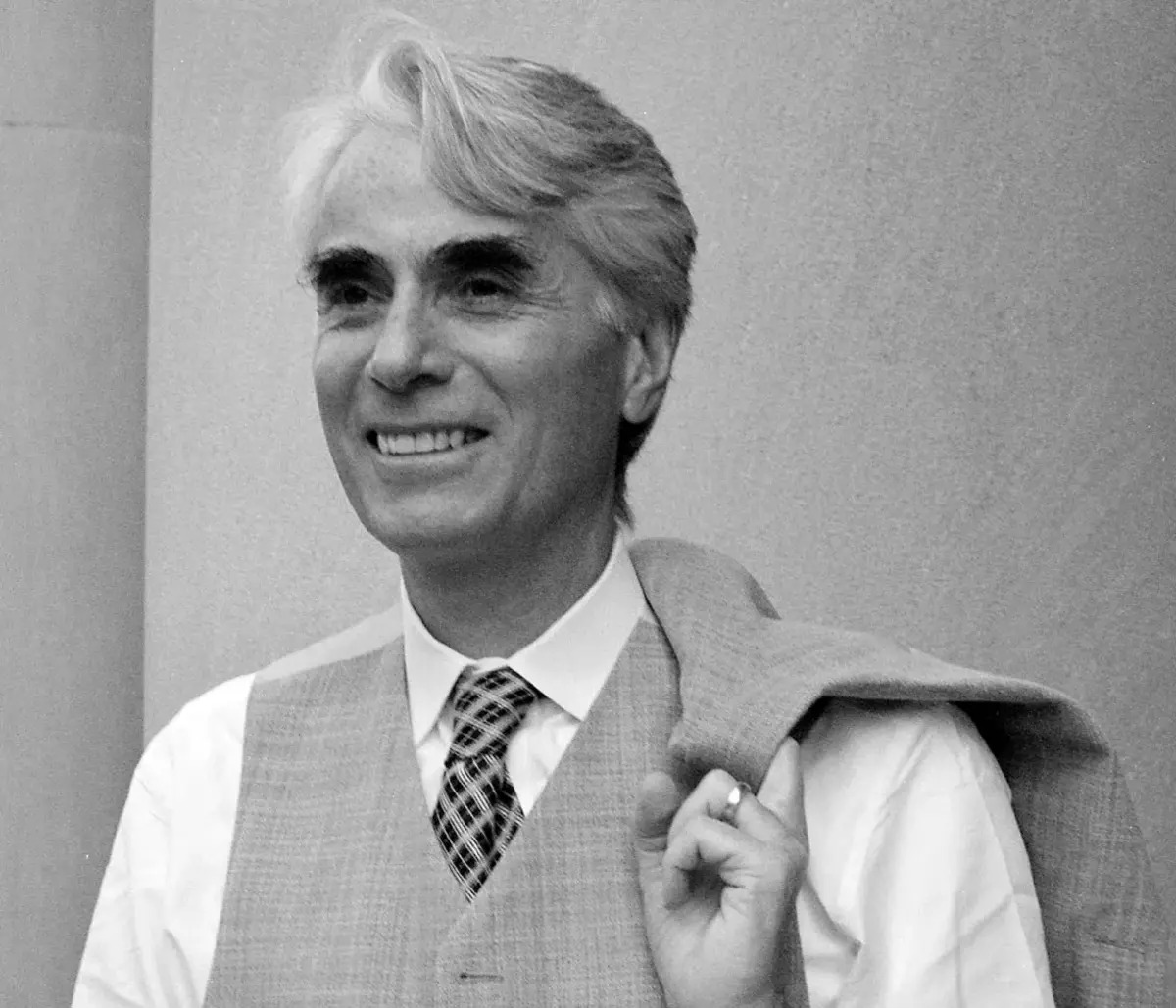
Robert Nozick was a renowned philosopher and political theorist who made significant contributions to the fields of ethics, political philosophy, and libertarianism. Born on November 16, 1938, in Brooklyn, New York, Nozick studied at Columbia University and later earned his Ph.D. in philosophy from Princeton University.
Nozick’s work challenged conventional wisdom and offered fresh perspectives on a wide range of issues. Through his thought-provoking writings and lectures, he became one of the most influential figures in contemporary philosophy.
In this article, we will delve into 20 astounding facts about Robert Nozick that highlight his intellectual prowess and impact on the academic world. From his groundbreaking book “Anarchy, State, and Utopia” to his unique stance on political theories, you will discover the fascinating life and ideas of this extraordinary philosopher.
Key Takeaways:
- Robert Nozick was a brilliant philosopher who believed in individual rights and challenged conventional wisdom. His ideas continue to inspire critical thinking and shape contemporary debates.
- Nozick’s influential work, “Anarchy, State, and Utopia,” explored libertarianism and the importance of self-ownership. His legacy endures, sparking ongoing discussions and providing valuable insights into human existence.
Robert Nozick was an influential philosopher.
With his groundbreaking ideas and thought-provoking theories, Nozick made significant contributions to the field of philosophy.
Nozick’s most famous work is “Anarchy, State, and Utopia.”
This book, published in 1974, explored topics such as libertarianism, political philosophy, and individual rights.
He was a strong advocate for individual rights and limited government.
Nozick believed in the importance of individual liberty and argued against excessive state control.
Nozick was born on November 16, 1938, in Brooklyn, New York.
His early experiences and surroundings influenced his intellectual development and shaped his philosophical perspective.
He studied philosophy at Columbia University.
Nozick pursued a rigorous education in philosophy, honing his analytical thinking and critical reasoning skills.
Nozick taught at Harvard University.
He joined the faculty at Harvard, where he had a profound impact on students and colleagues alike.
He co-founded the Harvard Program in Ethics and the Professions.
This program aimed to integrate ethical considerations into different professional fields, fostering ethical awareness in society.
Nozick was known for his concept of “The Experience Machine.”
In this thought experiment, he challenged the idea that pleasure and happiness are solely derived from fulfilling our desires.
He was critical of utilitarianism.
Nozick questioned the notion that actions should be judged solely based on their overall utility or happiness-maximizing consequences.
Nozick argued for the importance of self-ownership.
He believed that individuals have a fundamental right to control their bodies and make choices regarding their lives.
His writing style was characterized by clarity and logical precision.
Nozick’s works were renowned for their clear and concise arguments, making complex philosophical concepts accessible to a wide audience.
He was influenced by philosophers such as John Locke and Friedrich Hayek.
Nozick drew inspiration from classical liberal thinkers, incorporating their ideas into his own philosophical framework.
Nozick engaged in debates with other prominent philosophers.
His intellectual exchanges with philosophers like John Rawls stimulated important discussions on ethics, justice, and political philosophy.
He questioned the concept of distributive justice.
Nozick challenged the belief that society should strive for an equal distribution of resources and emphasized the importance of individual property rights.
Nozick’s work continues to be studied and debated today.
His ideas have sparked ongoing discussions among philosophers, political theorists, and scholars across various disciplines.
Nozick received numerous accolades for his contributions to philosophy.
His work garnered recognition and admiration from fellow academics, further solidifying his place in the philosophical community.
Nozick’s writings extend beyond political philosophy.
He also explored topics such as metaphysics, epistemology, and the nature of knowledge, showcasing his wide-ranging intellectual curiosity.
The key themes in Nozick’s work include individualism and the importance of free will.
He advocated for the recognition of individual autonomy and the freedom to make choices without undue interference.
His ideas challenged conventional wisdom and encouraged critical thinking.
Nozick’s thought-provoking arguments pushed the boundaries of traditional philosophical discourse, opening up new avenues of exploration.
Nozick’s legacy as a philosopher endures.
His ideas continue to shape and influence contemporary debates and provide valuable insights into the nature of human existence and society.
Conclusion
In conclusion, Robert Nozick was an intellectual powerhouse and a prominent figure in the field of philosophy. His groundbreaking theories and ideas challenged conventional wisdom and continue to shape the way we think about ethics and political philosophy.Nozick’s thought-provoking arguments on topics such as libertarianism, the minimal state, and the concept of justice have left a lasting impact on the philosophical discourse. His influential work, particularly his book “Anarchy, State, and Utopia,” has garnered critical acclaim and sparked countless debates among scholars and thinkers.With his keen intellect, Nozick delved into complex concepts such as individual rights, entitlement theory, and the role of the government. His emphasis on the importance of personal freedom and voluntary cooperation has made him a key figure in the libertarian tradition.Overall, Robert Nozick’s ideas continue to challenge and inspire contemporary philosophers, ensuring his enduring legacy in the realm of philosophy.
FAQs
1. Who was Robert Nozick?
Robert Nozick was an American philosopher known for his influential contributions to ethics, political philosophy, and epistemology. He was a professor at Harvard University and gained recognition for his book “Anarchy, State, and Utopia.”
2. What are some of Nozick’s key ideas?
Nozick developed the concept of the minimal state, arguing that the role of the government should be limited to protecting individual rights. He also proposed the idea of entitlement theory, which examines how individuals acquire and transfer property rights.
3. How did Nozick contribute to libertarianism?
Nozick’s ideas on individual liberty and limited government played a significant role in shaping libertarian philosophy. He argued that individuals have the right to live without interference from others, and the government’s primary function should be to protect these rights.
4. What is Nozick’s most famous work?
Nozick’s most famous work is “Anarchy, State, and Utopia,” published in 1974. This book presents his arguments for a minimal state and critiques alternative theories of political philosophy.
5. How has Nozick’s work influenced contemporary philosophy?
Nozick’s work continues to be widely discussed and debated in the philosophical community. His ideas have influenced discussions on topics such as distributive justice, property rights, and the limits of state power.
6. Was Nozick associated with any philosophical schools of thought?
Nozick is often associated with the libertarian tradition due to his emphasis on individual rights and limited government. However, he also engaged with other philosophical traditions and incorporated various ideas into his work.
If you're fascinated by Robert Nozick's ideas, why not explore the works of other influential thinkers? Dive into the political philosophy of Thomas Hobbes, whose surprising facts will challenge your understanding of society and government. Discover John Rawls' groundbreaking theory of justice, which has shaped modern discussions on fairness and equality. Finally, learn about the landmark case of Mapp v. Ohio and its impact on individual rights in the United States. Each of these topics offers a unique perspective on the complex world of philosophy and law.
Was this page helpful?
Our commitment to delivering trustworthy and engaging content is at the heart of what we do. Each fact on our site is contributed by real users like you, bringing a wealth of diverse insights and information. To ensure the highest standards of accuracy and reliability, our dedicated editors meticulously review each submission. This process guarantees that the facts we share are not only fascinating but also credible. Trust in our commitment to quality and authenticity as you explore and learn with us.


